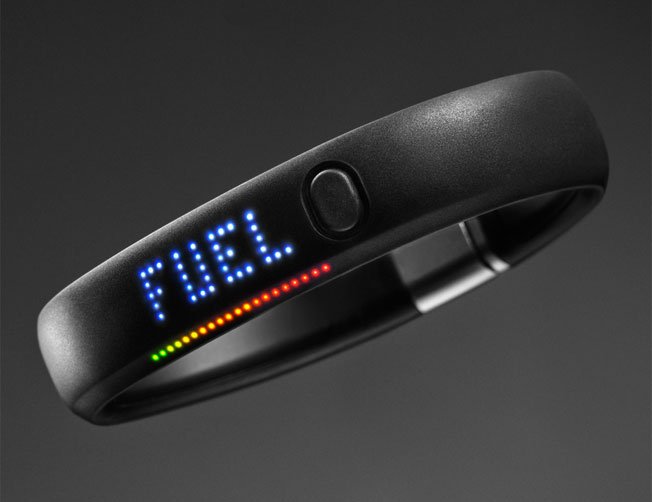
CANNES, France—Nike and R/GA used a forum at the Cannes Lions festival here today to celebrate FuelBand, their latest collaboration in a growing set of workout-measurement services that are completely changing the formerly product-focused company's approach to marketing.
In a masterful presentation—no Facebook freakouts here—the company's vp of digital sport, Stefan Olander, traced the history of Nike as a business and as a marketer, and said Nike+ is completely revolutionizing its relationship with consumers.
"Nike is becoming a company that isn't just focused on products, but is focused on products and services," he said. "It used to be that when you bought a product, that was the end of the relationship. It's classic marketing. 'Great, you bought the product. See you in a year, when the next campaign comes along.' That thinking has flipped on its head. Now, the purchase of any Nike product needs to be the beginning of the relationship we have with the consumer."
What Nike and R/GA are building, said Olander, is a whole "ecosystem" of gadgets and services built around measurable personal improvement through exercise. FuelBand, for example, which rolled out in January after an intense two years of development, is a accelerometer you wear on your wrist that tracks your activity and energy expenditures and translates them into "Nike Fuel." Users can sync the device to a computer or mobile phone, use software to create and manage exercise goals, and upload the data to the Nike+ website—enabling a seamless, dynamic, data-heavy, self-sustaining workout routine.
Nike+ is a sweet spot, Olander said, where two human cravings meet: the aspirational drive toward self-improvement on the one hand, and on the other, the desire—stronger than ever in the digital age—to quantify one's activities and accomplishments and compare them against others. (Nike's other Plus services, so far, are Nike+ Basketball, Nike+ Training and the forthcoming Nike+ Kinect Training.)
This kind of deeply immersive and connected product essentially becomes the company's de facto marketing, Olander said. "When I buy this product and take it home and sign up [for the services], I've created a link so much stronger than anything you could ever say in a communication," he said. "It's an emotional connection to myself, and my achievement, and my friends. We've now created an entire ecosystem of services that complement the product."
The relationship between Nike and its customers is changing so much as a result, he added, that the company's legendary tagline almost no longer applies.
"We have the phenomenal privilege of having one of the most powerful brand statements of all time in 'Just do it,' " Olander said. "I had the fortune of being global head of advertising and communications for Nike for a couple of years, and it was amazing, the campaigns we got to work on. … The change, though, is that people now demand us not to say 'Just do it,' they say 'Help me just do it.' 'Enable me to just do it.' And the role of the brand changes from one of inspiration to one of inspiration and enablement."
He added: "You have this platform of emotion, and you combine that with what you can do with technology, and you have something truly unique.
Joining Olander on stage, R/GA CEO Bob Greenberg argued that Nike belongs in the same conversation as Apple and Google and Amazon—companies that have changed their entire architecture and are now building seamless, interconnected services and experiences, not just products, for consumers. These companies are "functionally integrated," Greenberg said—adding that he is once again in the process of restructuring his own agency in an effort to become even more efficient at enabling this kind of work.
For Nike, there is no returning to the old ways. "Nike+ Running, when we did the first execution, started off as a marketing idea," Olander said. "It is not marketing anymore. This is how we run our business. And I think the great thing about our partnership [with R/GA] is that we both learn how we need to think differently about these things—and not view it as 'This is great, we've got great data, now we can sell you more because we know more about you.' It is all about serving the consumer. Our partnership has been amazing and allowed us to create a really robust platform for something that truly is there to help people get better."
 For complete coverage of Cannes Lions 2012,
For complete coverage of Cannes Lions 2012,
visit adweek.com/cannes.